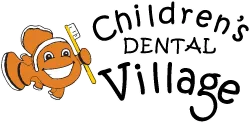
As our children grow, so do their teeth. Kids will often experience excitement (and some anxiety) when their first baby tooth begins to wiggle and eventually falls out. But, there’s so much more behind a child’s dental health than anticipating that special gift from the tooth fairy.
It begins even before birth
First things first: The oral health of your child begins at conception—and it’s extremely important that you visit a dentist before, during and after pregnancy. The mother’s dental health affects her overall health and her baby’s health. It’s important to remember that anything happening in mom’s body chemistry is also happening to the baby. Mothers-to-be need to control plaque and limit high-starch and sugary foods. Cavities are “contagious”, because germs in the mother’s mouth and family’s mouth will be in a baby’s mouth. Since babies aren’t born with their own oral flora, they adapt it soon after they are born.
Birth to six months
Almost instantly after birth, new parents should gently massage their baby’s gums with their little finger, a small, soft cloth or a rubber fingertip toothbrush. This will allow your baby to become acclimated to objects in their mouth other than the nipple. This can help the baby become familiar with someone, like a dentist, looking and touching their mouth.
When teeth appear (usually around six months of age), it’s important to use a soft cloth to remove plaque from their surfaces at least twice a day—especially before and after feedings and before bedtime. Never let babies fall asleep with sugary liquids in their bottle. Try filling your infant’s bottle with pure water anywhere between room temperature and body temperature.
Infant to toddler
Baby teeth may be small and temporary, but they’re important since they act as placeholders for adult teeth. After your child’s first few teeth pop up, you can graduate to cleaning them with a soft toothbrush with a small head and large handle. Parents will need to brush their child’s teeth until they are old enough to brush independently. It’s also imperative to supervise the process until the child can rinse and spit without assistance.
Parents should also introduce adult-sized cups and drinking glasses to their children as soon as they are able to manipulate a small cup. The earlier you can wean your kids off them, the better.
Pacifiers can also be a problem—especially if they are over-used or are badly shaped. Try using flattened types that most closely follow the natural form of a mothers’ nipple during nursing.
The first trip to the dentist
Your baby’s initial dental appointment should be made within six months to a year after birth. This visit will be quick if there are no issues with your child’s teeth. Try scheduling this early in the day, or after normal nap times so they are not tired.
After their visit as an infant, parents should schedule dental checkups every six months to ensure healthy teeth during childhood.
We want the dental office to be a fun and safe place to visit. Children’s Dental Village works with parents to help instill good dental habits in children. If you have any questions about your child’s first dental visit or other concerns, feel free to contact us, or complete the form below.
